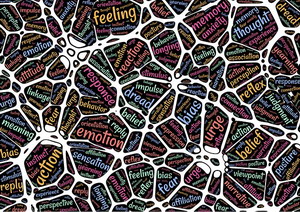
For the last several weeks my focus has been on motivation. The reason is very simple, I can give a person the greatest information and guidance in the world, but if they are not motivated to follow that guidance then there was no point in even knowing that information. At the end of the day the only thing that matters at all is what you actually do. Your intentions, your beliefs, your wishes, your expectations, your convictions, your brilliance, even your worthiness – all achieve nothing. Without follow through action nothing happens, and action begins in motivation.
On the surface motivation seems to be an easy topic, and everybody has a simple answer as to how to get and stay motivated. The problem is almost everybody is wrong. The world is seriously full of bad advice about motivation. Ideas that seem obvious often turn out having the opposite of the intended outcome. There are entire schools of thought in psychology centered on motivation and how to achieve it. Tons of research has been done. The data supports certain practices that apply some of the time for some people, but nothing has been found yet that works most of the time for most people. Why is that?

Part of the problem lies in how the brain is wired. Our existence as a biological being depends on a very critical balance of thousands of biochemical pathways. Life is not about on or off. Humans are not digital. Almost everything in the body is about a balance between too much or too little. The overall term for this balance is called homeostasis. Homeostasis feels good in the sense of calm and at ease. No internal buzzers or red light are flashing telling us “danger” because something is too high or too low in the body. This general process is controlled by our brainstem through the actions of our sympathetic and parasympathetic nervous systems and various hormone regulators. This is also called our reptilian brain and is the seat of our most core motivational drives, the five F’s – fight, flight, freeze, feed, and fornicate. The other thing that is key to understanding this area of the brain is that it functions in real time in the here and now. It does not think about tomorrow, next year, or even 20 minutes from now. It operates on instinct to achieve survival right now.
So the most core of our motivators cares nothing about our future goals or desires. It does not care about paying the rent at the end of the month. It does not care about the warning label on the cigarette box. It does not care about getting Alzheimer’s or heart disease or anything else that is not an issue right now.

Does your reptilian brain care about getting up early to take a jog? No. It does care about running very fast to get away from a bear chasing you. It cares about eating the quickest, easiest, tastiest food to eliminate its hunger. It cares about being invisible when your boss is mad and shifting the blame to someone else. It cares about flirting with that cute coworker irregardless of whether you or they are married. It even does a great job starting fights over which team is winning at the stadium. I am tempted to say that our reptilian brain acts like an immature teenager, except that I see too many adults in positions of authority acting the same way.
This type of behavior is good at getting our survival needs in the moment met. The problem is that survival requires more than homeostasis. We require more than being ok in this moment to be ok long term. This is because beyond the here and now moment is another huge survival concern. Biological systems (and psychological ones as well) need challenge. Quite literally, you are either pushing your way uphill or you are sliding downhill. There is no such thing as a stable plateau. There is a little thing called entropy, which in simple terms means everything is always winding down and loosing energy – everything degenerates. For example a muscle might be in perfect biochemical balance, but if you do not exercise it vigorously it will get steadily weaker and eventually waste away. Use it or lose it is a very real rule in the body. Rest causes degeneration when extended. Even a mere two weeks of inactivity (less than 1000 steps a day) will cause irreversible degeneration of your blood sugar handling system. Two weeks bed rest causes irreversible damage to the nerves that control your joints. Bed rest after an accident can do you as much harm as the accident itself.

What does this have to do with motivation? We have brain pathways that address this in our mid brain and higher brain processing areas that have their own motivators. Simply relying on doing what feels good in the moment fails miserably for the long term survival of the individual. In fact when studied, the single greatest predictor of success in life is the ability to delay gratification of those “in the moment” desires. Tons of other predictors were studied and assumed to be intrinsic to being successful like social skills, intelligence, and so on, and the only skill that always showed up was the ability to delay gratification. So to reflect, our survival depends on two opposite things – the brainstem survival motivators and the higher brain ability to inhibit/delay that intrinsic function. We experience this inner conflict all the time – “I want that bag of chips, but that bag of chips will make me fat.” As if deciding which of the five F’s I should do, now I have to decide whether I should do any of them at all.
As you begin to see, motivation is not so simple. The old carrot and boot theory of motivation just does not work in the real world. Some of the examples I came across were really amazing, like when daycare facilities imposed a monetary penalty for picking up your child late, the number of late pickups doubled. The explanation why was complex and fascinating. I have come across all sorts of attempts at creating motivation that failed spectacularly often creating the exact opposite response to that expected.

I wish I could say that I found the answer, but I haven’t. I have found that a lot of the most common practices and beliefs are dead wrong like writing down your goals, just doing your best, and visualizing accomplishing your goals. Study after study has shown these just don’t do a thing. Social peer pressure seems to be pretty strong at motivating many people, but not all people. Learning the specific adaptive skills to help you achieve your goals is a fundamental support for success, but does not guarantee success…. kind of like learning to ride a bicycle is an essential skill to having a paper route as a kid, but it does not guarantee you will get up and actually do the paper route.
Some research suggests that lowering the “entry cost” – meaning the amount of physical and mental energy needed to start a new habit, is helpful in building new health habits – like choosing a gym close to home instead of one across town. Likewise increasing the effort to engage in a bad habit helps break the bad habit. Just an increase of 20 seconds extra effort to engage your favorite bad habit greatly reduces the likelihood of engaging in that habit. For me the “out of sight is out of mind” trick works. If I have no crap food in the house, it is pretty easy for me to avoid crap food.

Getting healthy physically, emotionally, and mentally requires motivation to do the work that keeps us from sliding down into degeneration. We either fight the good fight or we are lost. There is no resting on our laurels. There is never such a thing as getting healthy enough. Life constantly is pulling our health down. We must push against the current constantly to even stay in the same place. I choose to make this a grand adventure – how about you?
